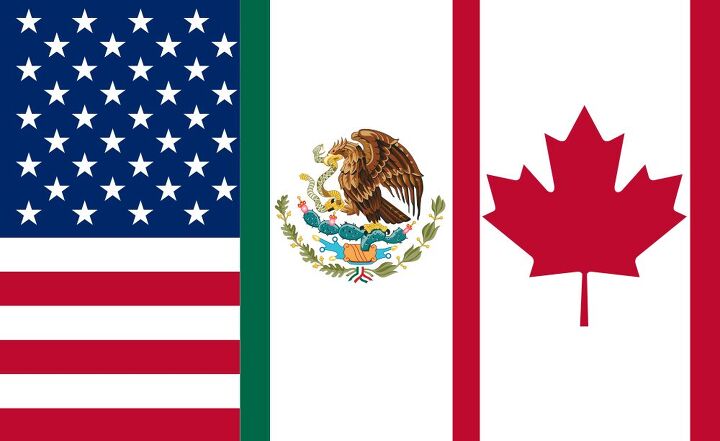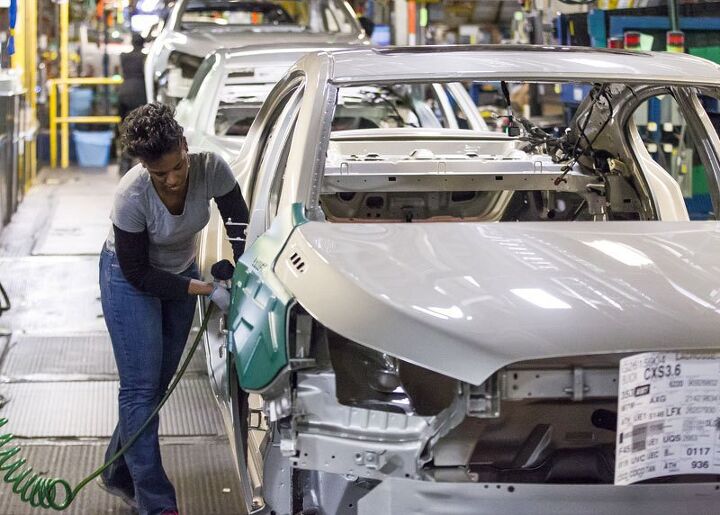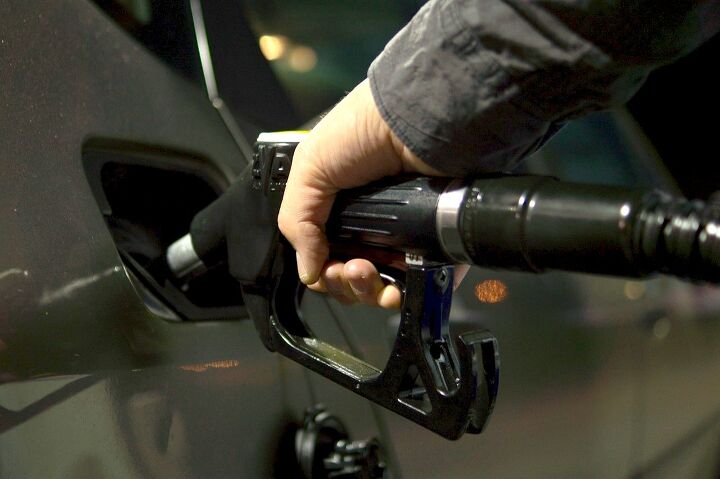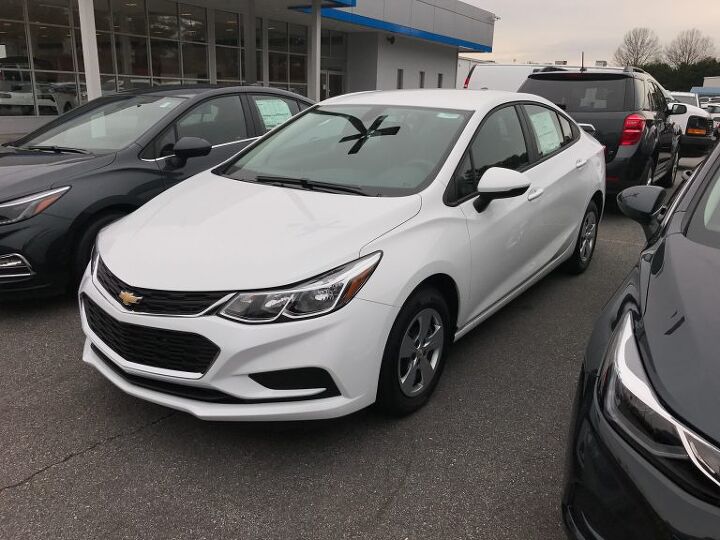#Government
More Cash Could Be on the Way for California Electric Car Buyers
Just as one incentive prepares to fade away, another green vehicle bonus looms on the horizon. California is considering upping the amount of cash buyers of electric vehicles stand to gain from their state government at purchase time — boosting the subsidy from today’s $2,500 to $4,500.
The potential change comes after Tesla reached the 200,000 limit for the full federal EV tax credit in July, with General Motors and Nissan trailing not far behind.
Tesla Buyers Reach Back Into the Public Purse After Court Ruling
We told you earlier this month that Tesla’s Canadian arm was suing the Ontario government for access to big rebates for some of its vehicles. For years, Ontario, located north of Erie, Pennsylvania, handed out up to $14,000 in taxpayer cash to electric vehicle buyers, part of its effort to support green living.
Over the years, the ceiling of eligible MSRPs varied — from unlimited, to $75k, to $150k, and back to $75k, shortly before the ousting of the previous government in this June’s election. This writer made his feelings on lofty EV subsidies quite clear.
While the cancellation of the province’s Electric and Hydrogen Vehicle Incentive Program (EHVIP) came with a grace period for buyers awaiting delivery that runs out on September 10th, it didn’t include Tesla buyers. Thanks to the automaker’s lawsuit, Tesla buyers can now grab back that $14,000.
Apparently, Everyone Negotiating NAFTA Is a Child
If you’re anything like this author, you’ve probably abandoned discussing the North American Free Trade Agreement in your personal life. That’s not because it stopped being important, but rather due to the fact that none of the three countries involved seem capable of making any sort of progress.
Presently, the United States and Mexico are focusing on rules associated with automotive production. However, after two days of non-stop negotiation, Mexican Economy Minister Ildefonso Guajardo said the two sides haven’t resolved their differences on the pending issues. Now Mexico says it won’t consider further negotiations until Canada agrees to a deal.
Here’s where things get remarkably shitty. Canada has already explained that it’s waiting for the U.S. and Mexico to strike a deal of their own. “If they can resolve their differences on [automotive trade], then I think we can move ahead and have the three of us talk about some of the other issues that affect all of us,” David MacNaughton, Canada’s ambassador to the U.S, said in an interview earlier this month.
QOTD: The State of a Scarlet Letter?
Last week’s QOTD post about states and their respective license plates generated a few comments about a particular plate issued by the state of Ohio. In today’s question, we dive a little deeper and focus solely on this Ohio plate, which just happens to be more unique than every other license plate in use today.
Three's Company, Too? Canada Returning to NAFTA Dance As U.S. and Mexico Approach Auto Deal
Canada says it could rejoin the NAFTA discussion, just as the United States and Mexico approach an agreement on automobiles. The two nations engaged in bilateral negotiations a little less than a month ago, seemingly making positive headway on a trade deal.
With President-elect Andrés Manuel López Obrador assuming office in December, it’s in the United States’ best interest to close a deal as soon as possible. It’s assumed the man, frequently referred to as “AMLO,” will make sweeping changes to the Mexican government. However, he also promises to join forces with several smaller parties from both the right and left to create a coalition aimed at rooting out corruption. The resulting level of uncertainty has many fearing difficult Mexican policy changes and trade negotiations in the future, effectively forcing a restart of NAFTA talks.
According to David MacNaughton, Canada’s ambassador to the U.S., the duo are close to finalizing a deal on automotive manufacturing. If so, the Northern nation is prepared to rejoin negotiations.
Japan's Minor Scandal: Mazda, Suzuki, Yamaha Apologize for Improper Vehicle Testing
Japan’s automotive industry finds itself in the midst of a minor scandal. Last year, the Japanese government ordered manufacturers to investigate their operations after it was revealed that Subaru and Nissan conducting improper testing for decades. Initially, the issue seemed to revolve around a widespread laziness that allowed uncertified employees to conduct final inspection procedures. However, Subaru later admitted to employees falsifying emissions data.
While the problem does not appear to be an outright corporate conspiracy, some inspectors still decided to implement a policy they knew was against the rules to avoid questions from top brass. Likewise, senior employees advised inspectors to change test results for each vehicle that failed to meet internal quality control standards.
On Thursday, the Japanese government announced the inspection issue haS also touched Mazda Motor Corp, Suzuki Motor Corp and Yamaha Motor Co (which builds motorcycles and automotive engines). All three companies are now faulted for improper testing procedures and compliance failures.
Will the Fuel Efficiency Rollback Help Employment?
President Donald Trump was obsessed with U.S. employment long before being sworn in as Commander-in-chief. In fact, the jobs rhetoric played a major role in swaying traditionally democratic voters in states like Michigan. The promise of manufacturing positions, the kind of work American used to be known for, was too tempting for some living in the Rust Belt to ignore.
“We’re going to work on the CAFE standards so you can make cars in America again,” he told Detroit’s auto workers in March 2017, referencing the Corporate Average Fuel Economy. “We’re going to help the companies, and they’re going to help you.”
Those fuel economy rollbacks are now fast approaching, after the National Highway Traffic Safety Administration and Environmental Protection Agency released their official proposal last week. But will it truly help bolster employment rates in the United States? The answer depends largely upon who you ask.
From Contractor to Employee: California Ruling Poised to 'Decimate' Uber, Lyft
An April ruling from the California Supreme Court determined that most contract workers, including those partnered with ride-hailing companies like Uber and Lyft, could actually qualify as employees under the state’s wage laws.
While that’s great in an era when wages can’t seem to match the constantly ascending cost of living and companies are cutting corners to maximize profits, it’s not so great for outfits that depend on contract workers to exist — like the aforementioned ride-hailing firms.
Uber and Lyft managed to balloon their revenues far beyond the billion-dollar mark, but neither company is currently profitable. Despite taking a cut of every single fare, expenses still result in a net loss for the companies during most rides. Assuming California forces them to tack on employee benefits and all the associated trimmings, both businesses could be in for a world of hurt.
Let's Not Forget Where the Fuel Economy Rollback Leaves Oil Companies
The Trump administration’s ongoing endeavor to replace existing fuel economy mandates with something easier on automakers is a hot topic, but the issue has more angles than a rhombicosidodecahedron. One that took a backseat during much of our coverage is where the oil industry fits into all of this. We figured it was pretty obvious because, every time we heard the word “rollback,” our minds automatically added the cash register sound effect.
Car manufacturers aggressively lobbied for more lax corporate average fuel economy (CAFE) standards since Donald Trump took office. But so has the oil industry; it just wasn’t doing so quite as openly. So what exactly does the federal government’s fuel economy rollback mean for Big Oil? Don’t act as if you didn’t already know.
Cha-ching.
EPA to Resume Enforcement of 'Glider Truck' Rules
The new acting administrator of the Environmental Protection Agency, Andrew Wheeler, has jackknifed former EPA head Scott Pruitt’s decision to quit enforcing the strict sales limits imposed on glider trucks.
If you’re unfamiliar with the term, they’re basically new heavy commercial trucks that use old powertrains. Advocates argue that using refurbished engines and transmissions save business owners loads of cash and promote recycling, since the internals would likely end up in a scrapyard. However, many complain that glider trucks simply exist to circumvent emissions regulations.
During President Obama’s tenure, the EPA said that if gliders were allowed through 2025, they would make up a scant five percent of the freight vehicles on the road — but would account for one third of all nitrogen oxides and particulate emissions from the heavy truck fleet. A crackdown was inevitable.
'I Won': Man Becomes Woman to Score Cheaper Chevy Cruze Insurance Policy
Why didn’t I think of this? An Alberta man with a spotty driving record and a burning lust for the Chevrolet Cruze discovered you can save piles of cash if the government thinks you’re a woman. Or at least an individual who identifies as one.
Speaking anonymously to CBC, the man said his transition to a female (on paper) began after he approached insurance companies in search of coverage for his new — and quite sensible — compact sedan. Well, we assume it was the sedan.
What followed was a journey through genders, all to save 91 bucks a month.
States' Rights: EPA Seeks '50-State Solution' for Fuel Rules, California Happy to Settle for 16
Andrew Wheeler, the acting head of the Environmental Protection Agency, said the United States needs a single standard for fuel efficiency for cars and trucks on Tuesday. It’s a sentiment shared by Mary Nichols, head of California Air Resources Board, but it’s likely to put the two at odds. Wheeler said the pair shared that singular goal based off a meeting held last week, but California isn’t seeking the same benchmarks as the current administration.
The state objects to the EPA’s plan to weaken Obama-era efficiency targets, and is currently in the midst of a political and legal battle with the agency. However, Wheeler confirmed that, under his watch, the group would continue seeking a “50-state solution.”
Justice Department Wants Refund From Sheriff Who Bought a Dodge Charger Hellcat
The U.S. Department of Justice is demanding that Georgia Sheriff Butch Conway reimburse the government for his procurement of a 707-horsepower Dodge Charger Hellcat, which it does not believe falls under the umbrella of reasonable purchases for a police department.
However, the DOJ isn’t questioning whether the department could make use of such a vehicle, as the federal government already approved its purchase. It just isn’t sure that Conway is being responsible with it, since it sounds like the Gwinnett Country Sheriff may be using it as his daily driver.
Trade War Watch: As Commerce Secretary Ponders Auto Tariffs During D.C. Hearing, Automakers Call Out the Troops
As the United States considers imposing new tariffs of up to 25 percent on imported automobiles and parts, the industry has rallied together to stand against the proposal. Manufacturers already made individual cases for themselves and are now dropping very bleak-sounding industry projections on the U.S. Commerce Department in the hopes of changing the administration’s mind.
However, President Donald Trump continues to promote the imposition of tariffs to force a sort of economic justice. For years, China’s protectionist policies regarding automobiles forced American manufacturers to build inside its borders and partner with Chinese firms for years. That’s something Trump claims could be a national security risk. China also recently upped its tax on American-made autos to 40 percent, shortly after promising to lower them. Meanwhile, Europe still holds a consistently higher tariffs on imported cars than the U.S., except for light trucks.
Commerce Secretary Wilbur Ross seems aware that China may have gamed the system in its favor, but appears less convinced that it’s a matter of national security. On Thursday, during a hearing on the probe into the industry, he said it was “too early” to say what the United States would do. Meanwhile, auto groups continue to make their terrifying case. (There’s also quite a bit of rolling PR in downtown D.C. today, as you’ll see below.)
QOTD: Who Should Pay for Your New Car?
As comedian and secret smart guy Norm Macdonald states during his standup routines, “Now, I don’t want to get political, but…”
Of course, Norm then trails off into a topic that’s completely removed from politics, like waiters using a sexualized tone while describing succulent desserts. I’ll keep it toned down here, lest an uproar ensues. From time to time, the actions of governments raise questions pertaining to vehicles that we can discuss without freaking out, and this happens to be one of those times.
Anyway, it turns out I’ll no longer be paying for a minute portion of someone else’s Tesla purchase.






























Recent Comments